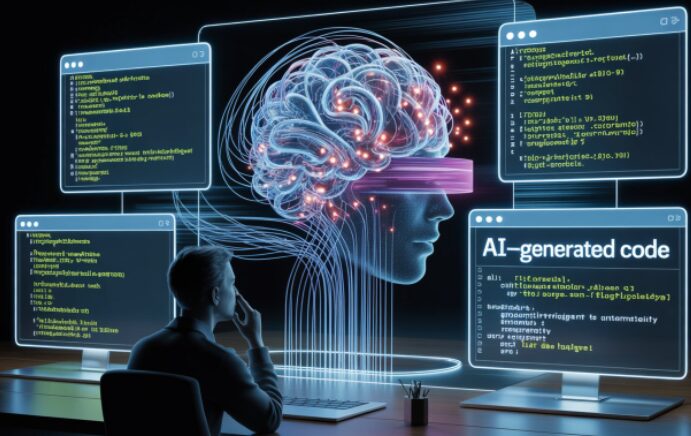TechBullion
1M
389

Image Credit: TechBullion
The Rise of AI-Generated Code: Will It Replace Developers?
- The rise of AI-generated code tools like GitHub Copilot, ChatGPT, and Amazon CodeWhisperer offers real-time code suggestions and the ability to generate functions from natural language.
- The question of whether AI will replace developers or collaborate with them is a crucial one in the tech world.
- AI is transforming coding workflows, job roles, and the relationship between human and machine in software development.
- AI has become essential in boosting productivity, reducing time-to-market, and reshaping how modern software is built.
- AI-assisted coding tools are streamlining development tasks and embedding themselves at every level of the development cycle.
- AI eliminates repetitive tasks, improves productivity, helps cut costs, and increases speed in software development.
- AI is democratizing software development by lowering entry barriers and improving code quality and security.
- Despite AI's advancements in writing code and suggesting solutions, human developers remain vital in understanding business goals and making critical decisions.
- The future points to enhanced collaboration between AI systems and human developers rather than full automation, creating new job roles for AI-augmented engineers.
- By 2030, AI is expected to handle a significant portion of routine development tasks, allowing developers to focus on system architecture, security, and product logic.
- The future likely involves AI-maintained systems, regulatory frameworks for AI-generated IP, and AI governance as core parts of the software lifecycle.
Read Full Article
23 Likes
For uninterrupted reading, download the app